#peter Carrington
Text
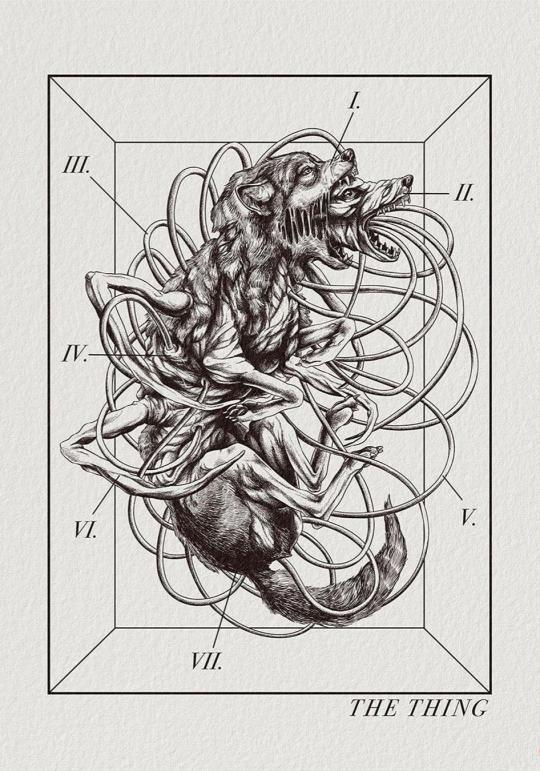
The Thing (1982) by Peter Carrington
#peter Carrington#the thing#the thing 1982#john carpenter's the thing#john carpenter#kurt russell#horror movie#horror film#1980s#80s horror#body horror#movie poster#poster#poster arr#alternative movie posters
503 notes
·
View notes
Text
"I never lose... except you know... that one time... my virginity."
This could be:
Heather Chandler
Jade West
Max Black
Fallon Carrington
Peter Strahm
Billy Hargrove
Tony DiNozzo
So many options
#heather chandler#jade west#max black#fallon carrington#peter strahm#billy hargrove#billy hargove imagine#tony dinozzo#heathers#victorious#2 broke girls#dynasty#saw#stranger things#ncis
11 notes
·
View notes
Text
Incorrect quotes#18
Peter and Pietro hiding something from y/n.
Suddenly y/n appears out of nowhere.
Peter: Y/NNNN....
Pietro: i have been looking all over for you.
Y/n: Yeah, by lurking in the shadows of a room no one goes into.
#incorrect quotes#incorrect marvel quotes#avengers x y/n#avenger!reader#pietro x you#pietro maximoff#peter parker#Pietro x y/n x Peter#fallon carrington#Dynasty
69 notes
·
View notes
Text
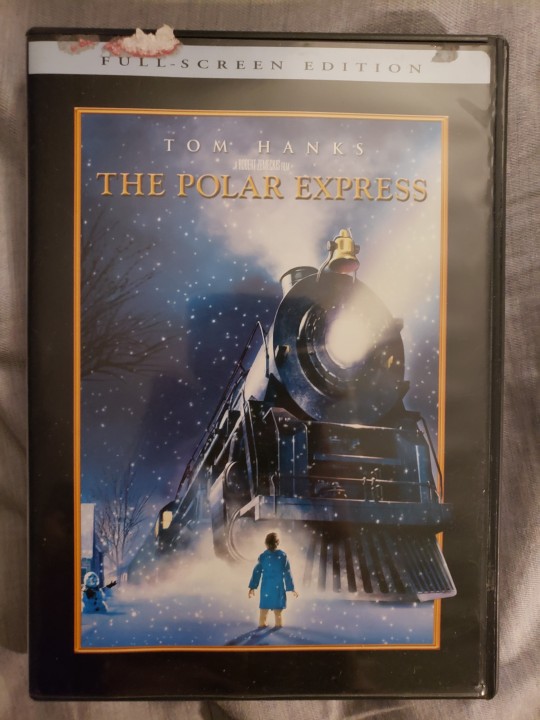
Now showing on my Christmas 🎄 movie marathon...The Polar Express (2004) on classic DVD 📀! #movie #movies #drama #christmas #ThePolarExpress #RobertZemeckis #TomHanks #PeterScolari #JoshHutcherson #MichaelJeter #RIPMichaelJeter #NonaGaye #DarylSabara #haydenmcfarland #StevenTyler #jimmybennett #DebbieLeeCarrington #ripdebbieleecarrington #jimmypinchak #seanwilliamscott #dylancash #JudyGreer #2000s #dvd #merrychristmas #merrychristmas2023
#movie#movies#drama#christmas#the polar express#Robert Zemeckis#tom hanks#peter scolari#nona gaye#daryl sabara#Jimmy Bennett#Michael Jeter#rip michael jeter#Charles Fleischer#josh hutcherson#Hayden McFarland#Steven Tyler#Debbie Lee Carrington#rip debbie lee carrington#jimmy pinchak#sean william scott#Dylan Cash#judy greer#2000s#dvd#Merry Christmas#Merry Christmas 2023#Spotify
2 notes
·
View notes
Text
Heather Trost Interview: Processing Descent Through Creativity
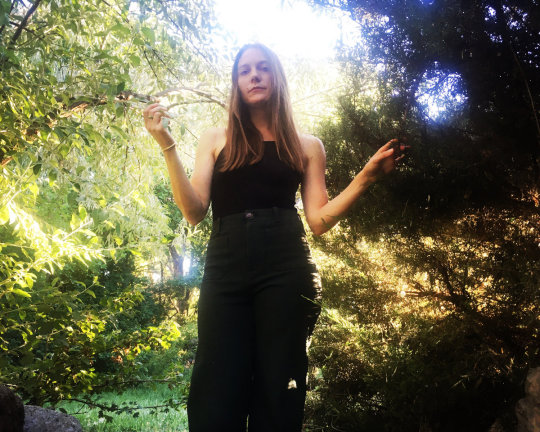
BY JORDAN MAINZER
Many pandemic records, no matter how positive they may seem on the surface, nonetheless leak a creeping sense of dread, or at least the unease of the unknown. Heather Trost’s Desert Flowers (Ba Da Bing!) is not one of those records. Maybe it helped that it was technically Trost’s second record finished during COVID, the first being 2020′s Petrichor. But centering around the very idea of oases, growth in a place that’s not supposed to support it, Desert Flowers finds utopia in familial comforts, dreams, and nature, no matter how imperfect. If the psychedelia its name suggests, connotes an overabundance of idealism, the album itself is anything but, marked by determined language and tactile instrumentation.
Desert Flowers simply flows. Opener “Frog and Toad are Friends” is the warm-up sci-fi surf instrumental. “The Devil Never Sleeps” is menacing for a moment only as a reminder for Trost to listen to her gut, her vocals otherwise carried by buzzing guitars and rolling drums. “Blue Fish”, whose arpeggiated wobbly synth line appeared as a motif in Peter Strickland’s film Flux Gourmet, is based on Trost’s dream of a blue fish, thrashing about in a bird’s mouth, speaking to her. “You Always Gave Me Succor” references a childhood encounter with a coyote. Throughout Desert Flowers, Trost doesn’t attempt to explain her relationship with flora and fauna; rather, she finds solace marveling at their very existence.
During our phone conversation last fall, Trost radiated the same enthusiasm for the natural world that appears on Desert Flowers. We went off on minutes-long tangents about our favorite local wildlife refuges, and further talked about her relationship to literature from Greek mythology to, yes, the Frog and Toad series. Read our conversation below, edited for length and clarity.
Since I Left You: Are desert flowers a metaphor for creating during a global pandemic?
Heather Trost: Yeah, I think so. Because I grew up in the desert, I have a lot of desert metaphors rolling around my brain, and the pandemic was a social desert but an opportunity. Obviously, I would have preferred not to have all the death and suffering of the pandemic, but it helped my creative process to have the time and the space to really sink in, be with myself, and write the lyrics and the melodies in a way that was unhindered by the normal business of life.
SILY: A lot of folks, whether they lived in an urban or rural environment, got a newfound appreciation for and became more connected to nature during the pandemic. Do you feel like that happened to you, especially as it pertains to your music?
HT: I’ve always been really connected to nature, but I had the time and space to take walks or be by a river or go to the mountains or go camping. It definitely helped.
SILY: What’s your relationship to the Frog and Toad book series?
HT: It’s a beautiful book [series]. I actually didn’t discover it until I was an adult, but I fell in love with these two characters. Toad is this ornery character who needs a lot of help coming out of his [shell,] and Frog is so carefree and filled with joy. He’s just like, “Look, Toad, it’s spring! Here are some cookies!” He’s so sweet. I feel like they’re the perfect friends.
SILY: Do you follow the Twitter account that every 3 hours Tweets out random lines from the book?
HT: [gasps] No!
SILY: It’s such a funny juxtaposition on the timeline with the hellish political posts or whatever you normally see. Like you say, it’s so carefree and matter-of-fact. A lot of those lines are simple observations and funny because of it. There’s no opinion.
HT: It’s just, “Time to get out of bed.” I’m definitely gonna have to follow that.
SILY: How did your song end up as a motif in Flux Gourmet?
HT: Peter Strickland is a very distinct filmmaker. He was part of this compilation of short horror films that A Hawk and a Hacksaw composed the music for. He made a music video for us for our last record. He came to us with Flux Gourmet, which is almost this incredible inside joke that he lets everybody in on. He was in a band like the characters in the movie, noise musicians that create sounds while cooking. It’s almost autobiographical. He has this amazing ability to create these worlds. I was writing “Blue Fish” when he approached us to do a song for the film, so I took the main theme and created different remixes of it for different scenes in the film.
SILY: Had you seen the film before sending in your music?
HT: Yes. He gave us an early version of the film, and [A Hawk and a Hacksaw and life partner] Jeremy [Barnes] and I fit it to the different scenes and created mixes for the different parts of the film where the music was used.
SILY: Was “Blue Fish” finished at the time?
HT: It was almost finished.
SILY: Did the experience of doing the work for Flux Gourmet influence the final version of the song?
HT: A little bit. It helped visualize the sonic world more concretely, in a way. It was like this dialogue back and forth between the film and the song.
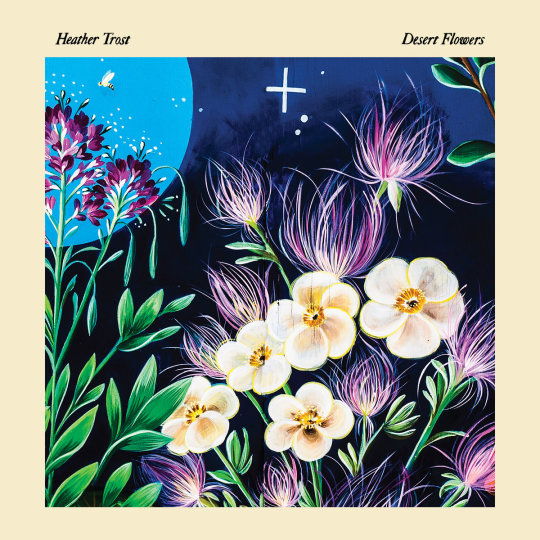
SILY: What about the word “succor” made you choose it for “You Always Gave Me Succor”? You don’t often see that word in popular music.
HT: I wrote the chorus years ago, “You always gave me succor.” At the time, I was going through a lot of healing with my relationship with my mom. My mom is great, and I love her, but moms are not perfect, so it was this idea that even though she wasn’t always able to be there for me, she would always be able to give me succor if I needed comfort. One of my earliest memories is her giving me baby Tylenol when I was little. I was thinking about that, and it developed into this more archetypal mother, mother earth thing that we can take comfort in.
That then reminded me of a time when I was 9 and camping in her backyard. I woke up and looked out the tent, and there was a coyote feet from our tent. We locked eyes. It was this electric current between myself and this coyote. Time stopped, and everything dissolved. I had this deep moment with this wild animal. That always kind of stayed with me. I see the coyote as a psychopomp, this guide to the unconscious and the underworld. It’s always been an important symbol to me.
SILY: Do you connect the experience of the coyote with your mom?
HT: I do because it happened when I was so young. It was this early memory, like the early memory of her giving me comfort. It was a moment where I realized you can find the same kind of solace and comfort in other creatures besides my mom.
SILY: I assume the following track, “Despoina”, is named after the Greek goddess. What’s your relationship with that mythology in general?
HT: When I wrote “Despoina”, I was reading about the myth of Persephone. There’s a line in the song, “May the grave of your suffering be buried at long last and descend like Persephone / She turns each tear into a seed.” This idea that, like Persephone, you can go into the underworld. In the myth, she eats 6 pomegranate seeds, which ties her to Hades, and she has to stay there for 6 months, which is why the Greeks believe fall and winter happen. I think it kind of goes along with the idea of creating in a global pandemic or situation where sometimes you have to go into the underworld to mine. You take these bitter seeds and turn them into something of your soul or something creative that comes out. I use those moments of descent and process them through my creativity. That myth really corresponds to moments of grief and sadness in our own lives.
SILY: Do you have a favorite track on here?
HT: “Sandcastles”, and I really like “Blue Fish” too.
SILY: “Sandcastles” is pretty groovy, and the line about “Humanity’s violent creations” melting “back into the mountain and the oceans,” also reminds me of the pandemic on a smaller scale, like when wildlife was appearing in places it hadn’t been in forever.
HT: Definitely!
SILY: What’s the story behind the cover art?
HT: It’s actually a closeup of a mural that my friend Nanibah Chacon painted. The mural is actually at a wildlife refuge near my house. The larger picture is a picture of these animals and children together in a beautiful scene with flowers and wildlife that I like to go to a lot and be in nature.
SILY: What else is next for you in the short and long term?
HT: I definitely want to play shows around this record. I’m hoping to do some touring. I’m always writing songs, so I’ve already started working on new ones. We’ll see: I’ll probably start recording in a little bit. Maybe another record? Maybe an EP? I’m not sure yet.
SILY: Anything you’ve been reading, watching, or listening to lately that’s caught your attention?
HT: “The Debutante” is based on the Leonora Carrington short story of the same title. I read her novel The Hearing Trumpet and then discovered her short stories and wrote that song. I’ve been watching Reservation Dogs. I really Hollie Cook’s record Happy Hour. I’ve been jamming that a lot recently. I recently bought this really funny record, The Zodiac: Cosmic Sounds. It’s music that Mort Garson composed for the twelve zodiac signs. Jeremy looked it up online, and realized members of the Wrecking Crew played on it. Unfortunately, it gets ruined by this guy Jacques Wilson citing poetry about the Zodiac signs over it. The music is so amazing.
youtube
#interviews#heather trost#ba da bing!#desert flowers#ba da bing#ba da bing records#ba da bing! records#petrichor#frog and toad#peter strickland#flux gourmet#twitter#a hawk and a hacksaw#jeremy barnes#despoina#persephone#hades#nanibah chacon#leonora carrington#the hearing trumpet#reservation dogs#hollie cook#happy hour#the zodiac: cosmic sounds#mort garson#wrecking crew#jacques wilson
1 note
·
View note
Text

Helena Christensen & Debbie Lee Carrington, El Mirage by Peter Lindbergh. 1990
79 notes
·
View notes
Note
do you have any book recommendations for us :D
MAYBE SO.......!!!! u know i love talkin abt books!!!
well, ok since ive posted about most of the books ive been reading recently MAYBE i can also post about some that i ordered and am waiting to arrive??? because all of these sounded very interesting to me!!!
SO books i have coming in the mail:
surrealist novels:
the woman in the dunes by kobo abe
the hearing trumpet by leonora carrington
the melancholy of resistance by laszlo krasznahorkai:
the third policeman by flann o'brien
nadja by andre breton
(been really into surrealism lately if it isn't apparent. most excited for melancholy of resistance i think)
horror, gothic, etc:
bruges-la-morte by georges rodenbach
the damned (la-bas) by joris-karl huysmans
floating dragon by peter straub
classics, short stories, etc:
french decadent tales (oxford world's classics) by stephen romer
in watermelon sugar by richard brautigan
swann's way (in search of lost time, #1) by marcel proust
selected short stories by balzac
icefields by thomas wharton
some ive picked up recently & stoked to read:
ada, or ardor by nabokov (my most beloved author of all time)
carmilla by le fanu
nightmare alley by william lindsay gresham
a king alone by jean giono
twilight of the idols by nietzsche
transparent things by nabokov
dark water by koji suzuki
selected poems by jorge luis borges (also beloved)
trolled my goodreads for more recs
books ive read & enjoyed so far this year:
the iliac crest by cristina rivera garza
the tenant by roland topor (FAV!!! huge fav)
crimson labyrinth by yusuke kishi
pedro paramo by juan rulfo
carolina ghost woods by judy jordan
death in her hands by ottessa moshfegh
the unbearable lightness of being by milan kundera
in the lake of the woods by tim o'brien
disgrace by j m coetzee
goth by otsuichi
books i enjoyed from last year:
the lottery & other stories by shirley jackson
the vegetarian by han kang
rosemary's baby by ira levin
piercing by ryu murakami (an all time fav)
the bloody chamber by angela carter (fav)
starve acre by andrew michael hurley (also a fav)
the glassy, burning floor of hell by brian evenson
the devil's larder by jim crace
monstrilio by gerardo samano cordova
and as a bonus, literally anything by nabokov. i have a big book of his short fiction that ive been reading slowly for a long while. despair by him is my fav book of all time, hands down. he is a master of absurdism (and a master of every language he writes in).
ALSO!!!! if youre into poetry, anything and every single thing by: t.s. eliot, baudelaire, rimbaud, borges. i also love neruda's poetry but i have heard he was an awful man so keep that in mind
#thotbox#thotmail#talky cherub#library cherub#i buy 95% of my books secondhand#i have something of a problem but i figure books are not the worst addiction one can have.....OOPS
28 notes
·
View notes
Text
↬ What and Who I Write for ↫
☆ Grease: The Rise of the Pink Ladies
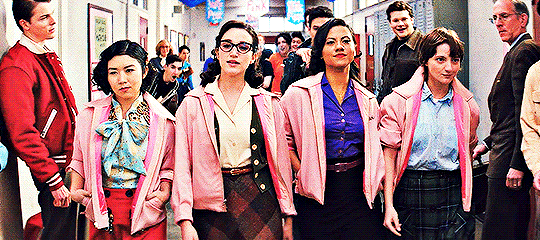
♡ Jane Facciano
♡ Oliva Valdovinos
♡ Nancy Nakagawa
♡ Cynthia Zdunowski
♡ Richie Valdovinos
♡ Shy Guy
♡ Potato
♡ Gil
♡ Susan
♡ Dot
♡ Rosemary
♡ Wally
♡ Hazel
♡ Buddy Aldridge
♡ Frenchy Facciano
☆ Grease
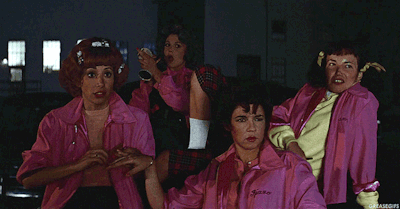
♡ Frenchy Facciano
♡ Betty Rizzo
♡ Sandy Olsson
♡ Marty Maraschino
♡ Jan
♡ Kenickie Murdoch
♡ Danny Zuko
♡ Sonny
♡ Doody
♡ Roger
♡ Leo Balmudo
☆ Grease 2
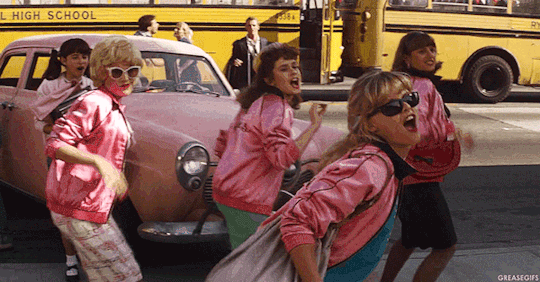
♡ Paulette Rebchuck
♡ Frenchy Facciano
♡ Micheal Carrington
♡ Goose McKenzie
♡ Stephanie Zinone
♡ Johnny Nogerelli
♡ Louis DiMucci
♡ Sharon Cooper
♡ Rhonda Ritter
☆ Criminal Minds
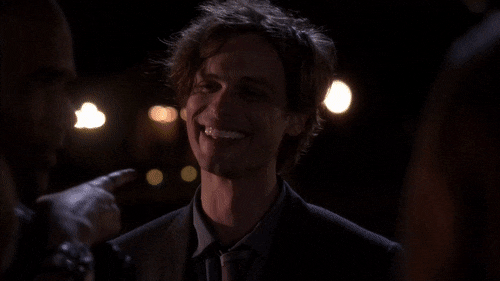
♡ Spencer Reid
♡ Aaron Hotchner
♡ Emily Prentiss
♡ Derek Morgan
♡ Jennifer Jareau
♡ Elle Greenway
♡ Penelope Garcia
☆ Twilight
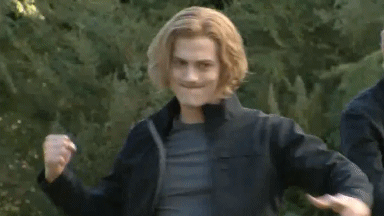
♡ Jasper Hale
♡ Alice Cullen
♡ Rosalie Hale
♡ Emmett Cullen
♡ Edward Cullen
♡ Carlisle Cullen
♡ Esme Cullen
♡ Bella Swan
♡ Sam Uley
♡ Paul Lahote
♡ Leah Clearwater
♡ Seth Clearwater
♡ Jacob Black
♡ Alec Volturi
♡ Cauis Volturi
☆ Miss Peregrines Home for Peculiar Children
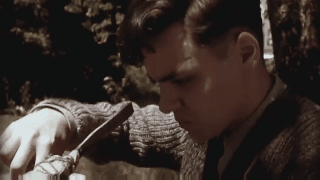
♡ Enoch O’ Connnor
♡ Emma Bloom
♡ Jacob Portman
♡ Millard Nullings
♡ Bronwyn
♡ Victor
♡ Horace
♡ Olive
♡ Hugh
♡ Fiona
☆ Glee
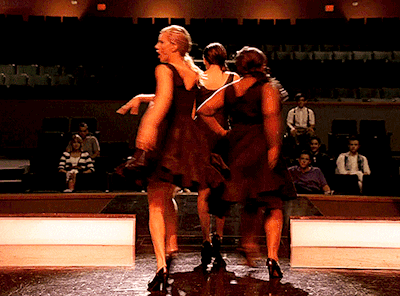
♡ Rachel Berry
♡ Finn Hudson
♡ Kurt Hummel
♡ Artie Abrams
♡ Santana Lopez
♡ Tina Cohen-Chang
♡ Mercedes Jones
♡ Brittany S. Pierce
♡ Noah Puckerman
♡ Sam Evans
♡ Blaine Anderson
♡ Mike Chang
♡ Quinn Fabray
♡ Jesse St. James
♡ Sebastian Smythe
☆ Pitch Perfect
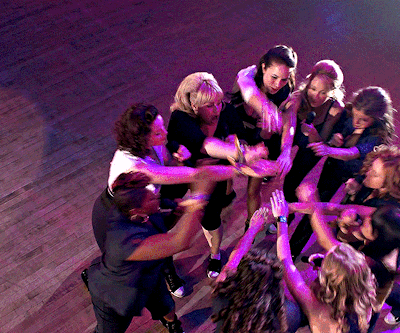
♡ Donald Walsh
♡ Jesse Swanson
♡ Beca Mitchell
♡ Aubrey Posen
♡ Chloe Beale
♡ Stacie Conrad
♡ Cynthia Rose Adams
♡ Unicycle
☆ Pitch Perfect 2
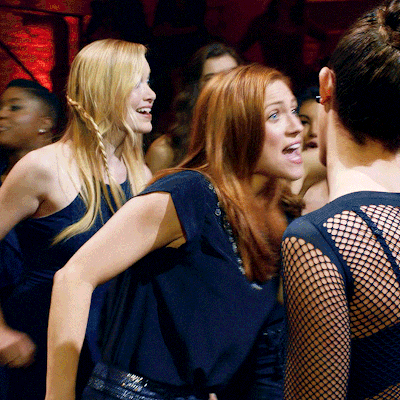
♡ Jesse Swanson
♡ Beca Mitchell
♡ Aubrey Posen
♡ Chloe Beale
♡ Stacie Conrad
♡ Cynthia Rose Adams
♡ Emily Junk
♡ Flo
♡ Pietrar
♡ Kommissar
☆ Pitch Perfect 3
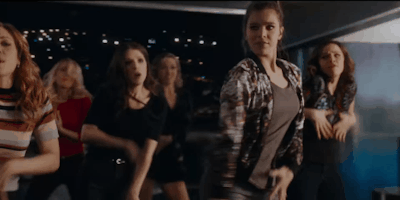
♡ Beca Mitchell
♡ Aubrey Posen
♡ Chloe Beale
♡ Stacie Conrad
♡ Cynthia Rose Adams
♡ Emily Junk
♡ Flo
♡ Calamity
♡ Serenity
♡ Charity
♡ Veracity
♡ Chicago
☆ Ride the Cyclone
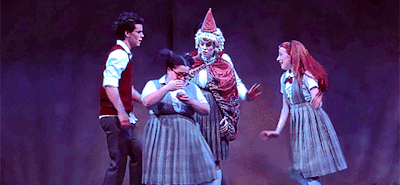
♡ Mischa
♡ Noel
♡ Ricky
♡ Constance
♡ Jane Doe
♡ Ocean
☆ Mamma Mia
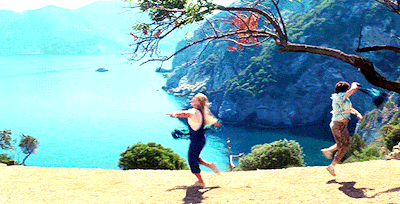
♡ Sophie Sheridan
♡ Sky
♡ Donna Sheridan
♡ Sam Carmicheal
♡ Harry Bright
♡ Bill Austin
♡ Pepper
☆ School Spirits
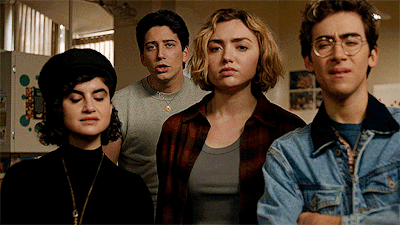
♡ Maddie Nears
♡ Simon Elroy
♡ Wally Clark
♡ Xavier Baxter
♡ Rhonda
♡ Charley
♡ Dawn
☆ Nerdy Prudes Must Die
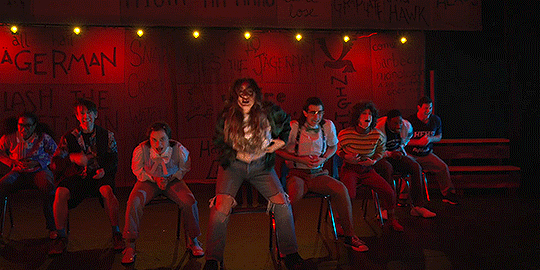
♡ Stephanie Lauter
♡ Peter Spankoffski
♡ Richie Lipschitz
♡ Ruth Fleming
♡ Grace Chasity
♡ Max Jagerman
♡ Lords in Black
☆ Movie! Five Nights at Freddy's
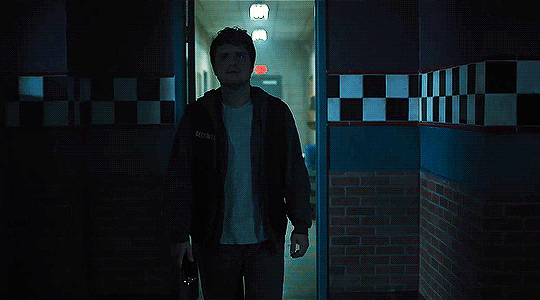
♡ Micheal Schmidt
♡ Vanessa Afton
♡ Platonic! Abby Schmidt
☆ Fruits Basket

♡ Tohru Honda
♡ Yuki Sohma
♡ Kyo Sohma
♡ Hatsuharu Sohma
♡ Momiji Sohma
♡ Shigure Sohma
♡ Hatori Sohma
↬Will most likely add more fandoms later↫
#the rise of the pink ladies#grease#grease 2#grease rise of the pink ladies#criminal minds#twilight#mphfpc#glee#pitch perfect#pitcher perfect 2#pitch perfect 3#ride the cyclone#mamma mia#school spirits#x reader#grease: rise of the pink ladies#the rise of the pink ladies x reader#grease x reader#grease 2 x reader#criminal minds x reader#twilight x reader#mphfpc x reader#glee x reader#pitch perfect x reader#pitch perfect 2 x reader#pitch perfect 3 x reader#ride the cyclone x reader#mamma mia x reader#school spirits x reader#nerdy prudes must die
120 notes
·
View notes
Text
tagged by my lovely darling @slytherinshua <3
rules: name 10 favorite characters from 10 different things then tag 10 people in no particular order (i don’t even have 10 moots yet so😭)
1. miranda bailey (greys anatomy)
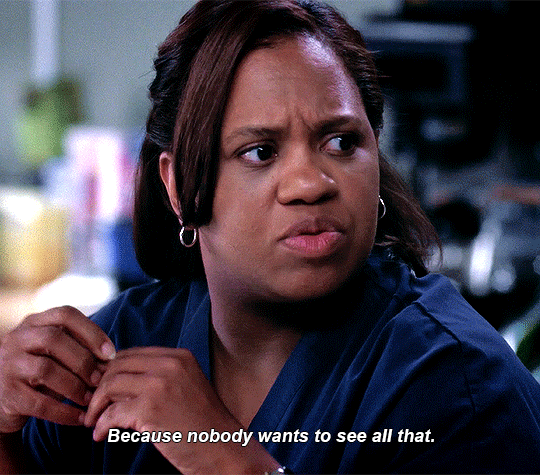
2. kuroo tetsurou (haikyuu)

3. kim seojin (the penthouse)
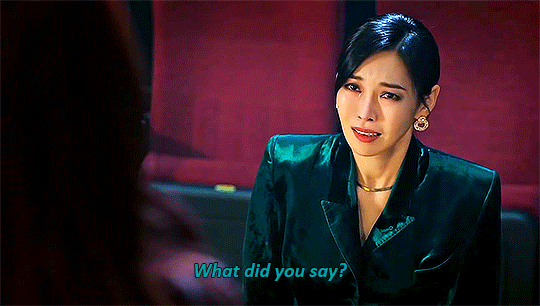
4. han seojun (true beauty)

5. peter parker (avengers)

6. jack wilder (now you see me)
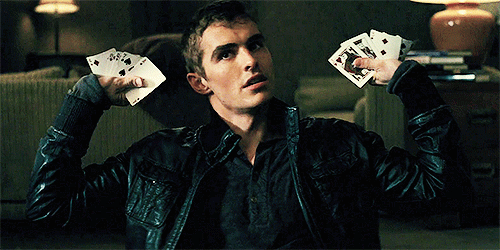
7. regina george (mean girls)
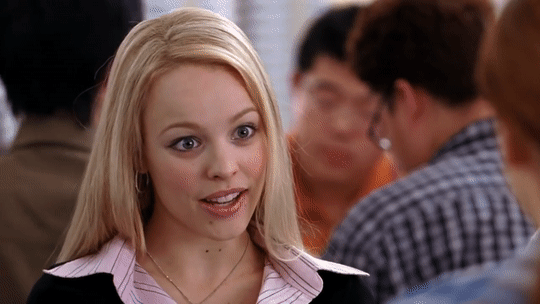
8. yato (noragami)

9. camilo madrigal (encanto)
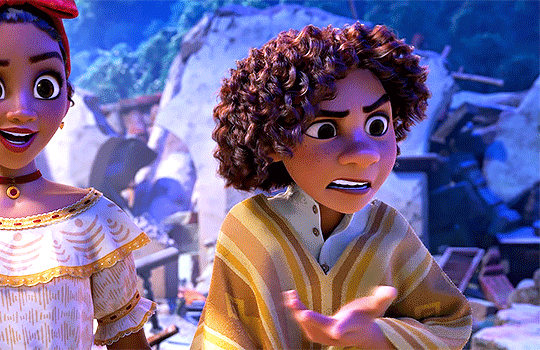
10. fallon carrington (dynasty)

tagging: @welcometomyoasis @babyleostuff @idubiluv @mirxzii <3
44 notes
·
View notes
Text
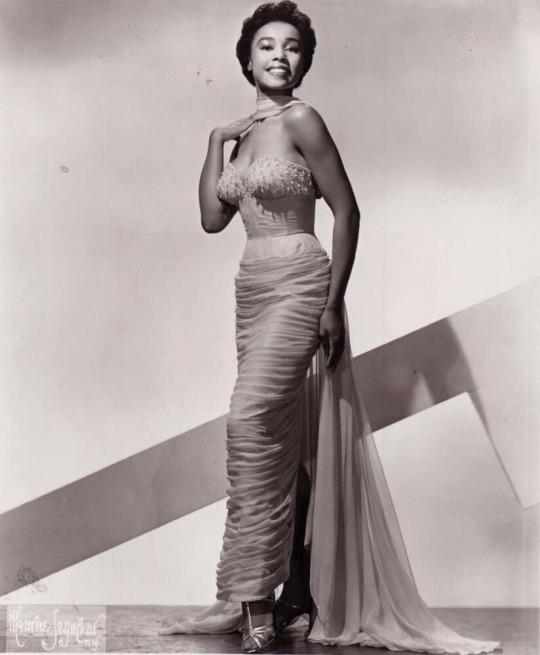
Carol Diann Johnson was born in the Bronx, New York City, on July 17, 1935, to John Johnson, a subway conductor, and Mabel (Faulk), a nurse. While Carroll was still an infant, the family moved to Harlem, where she grew up except for a brief period in which her parents had left her with an aunt in North Carolina. She attended Music and Art High School, and was a classmate of Billy Dee Williams. In many interviews about her childhood, Carroll recalls her parents' support, and their enrolling her in dance, singing, and modeling classes. By the time Carroll was 15, she was modeling for Ebony. "She also began entering television contests, including Arthur Godfrey's Talent Scouts, under the name Diahann Carroll." After graduating from high school, she attended New York University, where she majored in sociology, "but she left before graduating to pursue a show-business career, promising her family that if the career did not materialize after two years, she would return to college.
Carroll's big break came at the age of 18, when she appeared as a contestant on the DuMont Television Network program, Chance of a Lifetime, hosted by Dennis James. On the show, which aired January 8, 1954, she took the $1,000 top prize for a rendition of the Jerome Kern/Oscar Hammerstein song, "Why Was I Born?" She went on to win the following four weeks. Engagements at Manhattan's Café Society and Latin Quarter, nightclubs soon followed.
Carroll's film debut was a supporting role in Carmen Jones (1954), as a friend to the sultry lead character played by Dorothy Dandridge. That same year, she was nominated for a Tony Award for Best Featured Actress in a Musical for her role in the Broadway musical, House of Flowers. A few years later, she played Clara in the film version of George Gershwin's Porgy and Bess (1959), but her character's singing parts were dubbed by opera singer Loulie Jean Norman. The following year, Carroll made a guest appearance in the series Peter Gunn, in the episode "Sing a Song of Murder" (1960). In the next two years, she starred with Sidney Poitier, Paul Newman, and Joanne Woodward in the film Paris Blues (1961) and won the 1962 Tony Award for Best Actress in a Musical (the first time for a Black woman) for portraying Barbara Woodruff in the Samuel A. Taylor and Richard Rodgers musical No Strings. Twelve years later, she was nominated for an Academy Award for Best Actress for her starring role alongside James Earl Jones in the film Claudine (1974), which part had been written specifically for actress Diana Sands (who had made guest appearances on Julia as Carroll's cousin Sara), but shortly before filming was to begin, Sands learned she was terminally ill with cancer. Sands attempted to carry on with the role, but as filming began, she became too ill to continue and recommended her friend Carroll take over the role. Sands died in September 1973, before the film's release in April 1974.
Carroll is known for her titular role in the television series Julia (1968-71), which made her the first African-American actress to star in her own television series who did not play a domestic worker. That role won her the Golden Globe Award for Best TV Star – Female for its first year, and a nomination for an Primetime Emmy Award in 1969. Some of Carroll's earlier work also included appearances on shows hosted by Johnny Carson, Judy Garland, Merv Griffin, Jack Paar, and Ed Sullivan, and on The Hollywood Palace variety show. In 1984, Carroll joined the nighttime soap opera Dynasty at the end of its fourth season as the mixed-race jet set diva Dominique Deveraux, Blake Carrington's half-sister. Her high-profile role on Dynasty also reunited her with her schoolmate Billy Dee Williams, who briefly played her onscreen husband Brady Lloyd. Carroll remained on the show and made several appearances on its short-lived spin-off, The Colbys until she departed at the end of the seventh season in 1987. In 1989, she began the recurring role of Marion Gilbert in A Different World, for which she received her third Emmy nomination that same year.
In 1991, Carroll portrayed Eleanor Potter, the doting, concerned, and protective wife of Jimmy Potter (portrayed by Chuck Patterson), in the musical drama film The Five Heartbeats (1991), also featuring actor and musician Robert Townsend and Michael Wright. She reunited with Billy Dee Williams again in 1995, portraying his character's wife Mrs. Greyson in Lonesome Dove: The Series. The following year, Carroll starred as the self-loving and deluded silent movie star Norma Desmond in the Canadian production of Andrew Lloyd Webber's musical version of the film Sunset Boulevard. In 2001, Carroll made her animation debut in The Legend of Tarzan, in which she voiced Queen La, ruler of the ancient city of Opar.
In 2006, Carroll appeared in several episodes the television medical drama Grey's Anatomy as Jane Burke, the demanding mother of Dr. Preston Burke. From 2008 to 2014, she appeared on USA Network's series White Collar in the recurring role of June, the savvy widow who rents out her guest room to Neal Caffrey. In 2010, Carroll was featured in UniGlobe Entertainment's breast cancer docudrama titled 1 a Minute and appeared as Nana in two Lifetime movie adaptations of Patricia Cornwell’s novels: At Risk and The Front.
In 2013, Carroll was present on stage at the 65th Primetime Emmy Awards to briefly speak about being the first African-American nominated for a Primetime Emmy Award. She was quoted as saying about Kerry Washington, nominated for Scandal, "She better get this award."
Carroll was a founding member of the Celebrity Action Council, a volunteer group of celebrity women who served the women's outreach of the Los Angeles Mission, working with women in rehabilitation from problems with alcohol, drugs, or prostitution. She helped to form the group along with other female television personalities including Mary Frann, Linda Gray, Donna Mills, and Joan Van Ark.
Carroll was diagnosed with breast cancer in 1997. She said the diagnosis "stunned" her, because there was no family history of breast cancer, and she had always led a healthy lifestyle. She underwent nine weeks of radiation therapy and had been clear for years after the diagnosis. She frequently spoke of the need for early detection and prevention of the disease. She died from cancer at her home in West Hollywood, California, on October 4, 2019, at the age of 84. Carroll also had dementia at the time of her death, though actor Marc Copage, who played her character's son on Julia, said that she did not appear to show serious signs of cognitive decline as late as 2017. A memorial service was held in November 24, 2019, at the Helen Hayes Theater in New York City.
#carroll#emmy award#neal caffrey#carol diann johnson#carol johnson#african#afrakan#kemetic dreams#brownskin#africans#brown skin#afrakans#bronx#new york#los angeles#marc copage#october#julia#helen hayes theater#west hollywood#california#kerry washington#scandal#mary frann#linda gray#donna mills#joan van ark#breast cancer#diagnosis
83 notes
·
View notes
Text
1980s Horror Film Character Names
I totally forgot I’d started making this last year! I think I never posted it because I wanted to find more names, but there’s already a decent amount and I don’t feel like being that tedious about names right now lol.
It’s first & last names (separated for mix & match potential) of characters from iconic late 1970s & 1980s horror movies. I think I started looking for cheesier B-movies to pull from, but yeah it’s been a whole year so I forget.
First Names
Alice
Allen
Allison
Ally
Amy
Angela
Annie
Arnie
Artie
Axel
Barry
Bill
Billy
Bobby
Brady
Brenda
Brent
Brett
Brooke
Buddy
Burt
Buzz
Carol Anne
Carter
Casey
Charley
Charlie
Chili
Christine
Chuck
Cindy
Courtney
Craig
Cynthia
Dana
Darcy
Debbie
Demi
Dennis
Diane
Donna
Doug
Doyle
Duane
Elaine
Ellie
Emma
Ernie
Ferdy
Foster
Gary
Gene
George
Gerald
Ginny
Glen
Hal
Hank
Helen
Jack
Jackie
Jake
Jason
Jeff
Jennifer
Jerry
Jesse
Jimmy
Joanne
Jodi
Joe
Joey
John
Johnny
Judd
Judy
Kate
Katherine
Kathy
Katie
Kelly
Ken
Kenny
Kim
Kimberly
Kristen
Larry
Laurie
Lea
Leigh
Lenny
Leroy
Linda
Lisa
Liz
Lynn
Marci
Marcia
Marcie
Mark
Mary Lou
Masen
Max
Meg
Megan
Mel
Melissa
Mike
Molly
Monica
Nancy
Ned
Neil
Nick
Nicki
Nikki
Patti
Patty
Paul
Paula
Peter
Phoebe
Polly
Rachel
Ralph
Reilly
Rennie
Richie
Rick
Ricky
Rob
Rod
Roland
Ronnie
Roy
Ruby
Rudolf
Rudy
Russ
Sally
Sandy
Sara
Sarah
Shane
Sharon
Sheila
Shelly
Sissy
Steve
Steven
Susie
Suzie
Tad
Taryn
Teddy
Terri
Tina
Toby
Tom Jesse
Tommy
Tracy
Trish
Valerie
Vic
Vickie
Vicky
Warren
Wendy
Wes
Will
Last Names
Andrews
Angelo
Badger
Baker
Barnes
Barrington
Bates
Baxter
Beringer
Brand
Brewster
Bringsley
Brown
Burke
Burns
Cabot
Camber
Carrington
Cassidy
Caulfield
Challis
Clarke
Cole
Cologne
Corben
Corvino
Costic
Crusel
Cunningham
Daigler
Dandrige
Daniels
Darnell
Darrinco
Deagle
Dier
Doyle
Duke
Dumpkin
Duncan
Essmont
Evans
Field
Franklin
Freeling
Frye
Futterman
Garris
Garth
Geiger
Graham
Gray
Grimbridge
Guilder
Halavex
Hammond
Hanniger
Hardy
Harper
Hawes
Holland
Hopkins
Jachson
Jarvis
Jessup
Junkins
Kemp
Kessler
Kincaid
Kopecky
Kupfer
Lane
Lantz
LeBay
Lynch
Lynn
Macauley
Maloney
McBride
McFadden
McGregor
McNichol
Meeker
Meisel
Mercer
Morgan
Mott
Nagle
Nessler
Newby
Palmer
Parker
Parks
Parsley
Pataki
Peltzer
Penmark
Perry
Pervier
Powers
Priswell
Repperton
Richards
Shote
Spool
Stanton
Stark
Statler
Stavinski
Steele
Stevens
Strauber
Strode
Sykes
Taylor
Thomas
Thompson
Thorn
Toomey
Trenton
Vanders
Venable
Walsh
Warner
Weatherall
Webber
White
80 notes
·
View notes
Photo
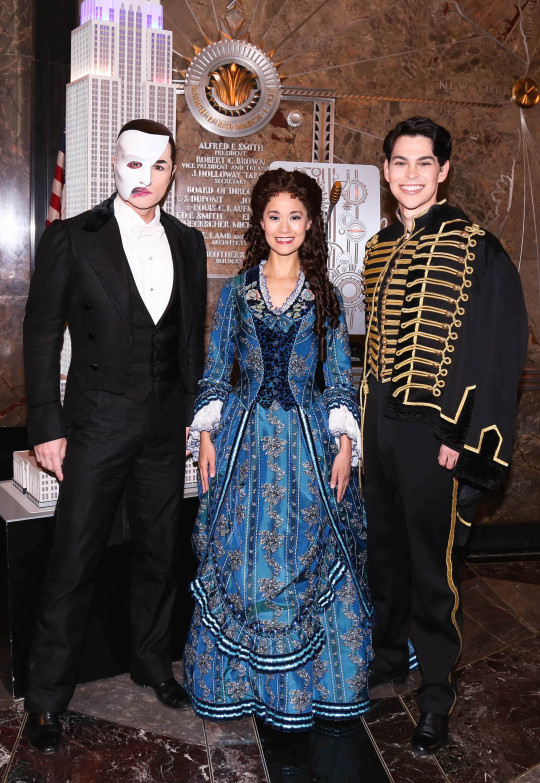


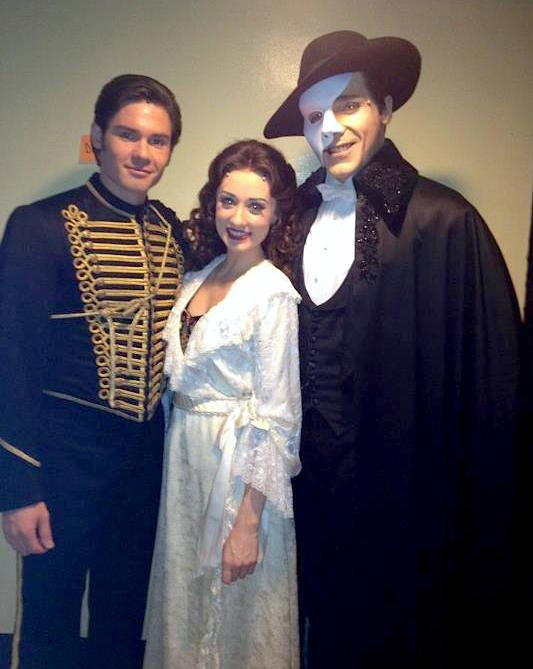


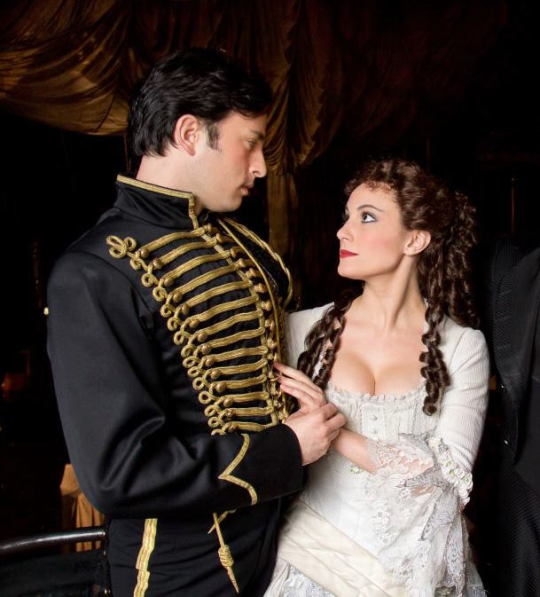
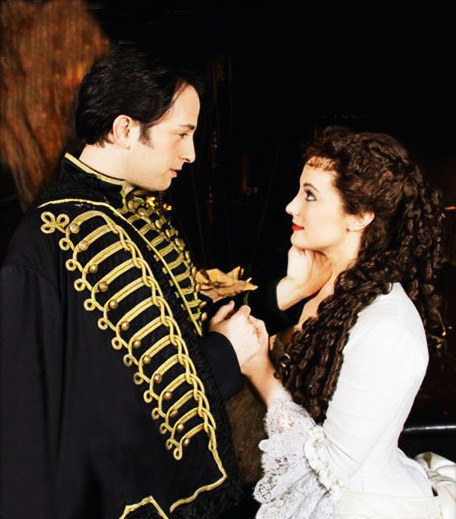
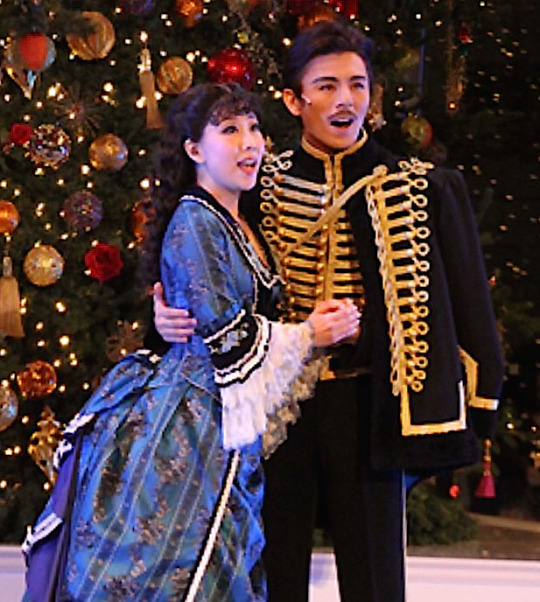

Hussar costume with any other costume than Star Princess (heh)
Peter Jöback, Ali Ewoldt and Rodney Ingram, Broadway
Jung Han Ryu (?). Hye Kyung Lee and Young Seok Yoon, Seoul
Kimilee Bryant and Carrington Vilmont (?), Broadway
Anthony Downing, Claire Lyon, Jonathan Roxmouth, World Tour
Elizabeth Loyacano and Andrew Ragone, Las Vegas
Sierra Boggess and Andrew Ragone, Las Vegas
Kyle Barisich and Trista Moldovan, Broadway
Kyle Barisich and Trista Moldovan, Broadway
Unidentified, Shiki promo in Japan
Ali Ewoldt and Rodney Ingram, Broadway
42 notes
·
View notes
Text
Squash's Book Roundup 2023
Last year I read 67 books. This year my goal was 70, but I very quickly passed that, so in total I read 92 books this year. Honestly I have no idea how I did it, it just sort of happened. My other goal was to read an equal amount of fiction and nonfiction this year (usually fiction dominates), and I was successful in that as well. Another goal which I didn’t have at the outset but which kind of organically happened after the first month or so of reading was that I wanted to read mostly strange/experimental/transgressive/unusual fiction. My nonfiction choices were just whatever looked interesting or cool, but I also organically developed a goal of reading a wider spread of subjects/genres of nonfiction. A lot of the books I read this year were books I’d never heard of, but stumbled across at work. Also, finally more than 1/3 of what I read was published in the 21st century.
I’ll do superlatives and commentary at the end, so here is what I read in 2023:
-The Commitments by Roddy Doyle
-A Simple Story: The Last Malambo by Leila Guerriero
-The Hero With A Thousand Faces by Joseph Campbell
-Uzumaki by Junji Ito
-Chroma by Derek Jarman
-The Emerald Mile: The epic story of the fastest ride in history through the Grand Canyon by Kevin Fedarko
-Venus by Suzan-Lori Parks
-The Hearing Trumpet by Leonora Carrington
-Sacred Sex: Erotic writings from the religions of the world by Robert Bates
-The Virginia State Colony For Epileptics And The Feebleminded by Molly McCully Brown
-A Spy In The House Of Love by Anais Nin
-The Sober Truth: Debunking the bad science behind 12-step programs and the rehab industry by Lance Dodes
-The Sailor Who Fell From Grace With The Sea by Yukio Mishima
-The Aliens by Annie Baker
-The Criminal Child And Other Essays by Jean Genet
-Aimee and Jaguar: A Love Story, Berlin 1943 by Erica Fischer
-The Master And Margarita by Mikhail Bulgakov
-The Mustache by Emmanuel Carriere
-Maldoror by Comte de Lautreamont
-Narrow Rooms by James Purdy
-At Your Own Risk by Derek Jarman
-Escape From Freedom by Erich Fromm
-Countdown: A Subterranean Magazine #3 by Underground Press Syndicate Collective
-Fabulosa! The story of Britain's secret gay language by Paul Baker
-The Golden Spruce: A true story of myth, madness and greed by John Vaillant
-Querelle de Roberval by Kevin Lambert
-Fire The Bastards! by Jack Green
-Closer by Dennis Cooper
-The Woman In The Dunes by Kobo Abe
-Opium: A Diary Of His Cure by Jean Cocteau
-Worker-Student Action Committees France May '68 by Fredy Perlman and R. Gregoire
-Capitalist Realism by Mark Fisher
-The Sound Of Waves by Yukio Mishima
-One Day In My Life by Bobby Sands
-Corydon by Andre Gide
-Noopiming by Leanne Betasamosake Simpson
-Man Alive: A true story of violence, forgiveness and becoming a man by Thomas Page McBee
-The Artist's Reality: Philosophies of Art by Mark Rothko
-Damage by Josephine Hart
-Schoolgirl by Osamu Dazai
-The Passion According to G.H. by Clarice Lispector
-The Sex Revolts: Gender, Rebellion and Rock n Roll by Simon Reynolds and Joy Press
-The Traffic Power Structure by planka.nu
-Bird Man: The many faces of Robert Straud by Jolene Babyak
-Seven Dada Manifestos by Tristan Tzara
-The Journalist by Harry Mathews
-Bullshit Jobs by David Graeber
-Moscow To The End Of The Line by Venedikt Erofeev
-Morvern Callar by Alan Warner
-The Poetics Of Space by Gaston Bachelard
-A Boy's Own Story by Edmund White
-The Coming Insurrection by The Invisible Committee
-Jesus' Son by Denis Johnson
-Notes From The Sick Room by Steve Finbow
-Artaud The Momo by Antonin Artaud
-Doctor Rat by William Kotzwinkle
-Recollections Of A Part-Time Lady by Minette
-trans girl suicide museum by Hannah Baer
-The 99% Invisible City by Roman Mars
-Sweet Days Of Discipline by Fleur Jaeggy
-Breath: The new science of a lost art by James Nestor
-What We See When We Read by Peter Mendelsund
-The Cardiff Tapes (1972) by Garth Evans
-The Ark Sakura by Kobo Abe
-Mad Like Artaud by Sylvere Lotringer
-The Story Of The Eye by Georges Bataille
-Little Blue Encyclopedia (For Vivian) by Hazel Jane Plante
-Blood And Guts In High School by Kathy Acker
-Summer Fun by Jeanne Thornton
-Splendid's by Jean Genet
-VAS: An Opera In Flatland by Steve Tomasula
-Sorry I'm Late, I Didn't Want To Come: One introvert's year of saying yes by Jessica Pan
-Whores For Gloria by William T. Vollmann
-The Notebooks by Jean-Michel Basquiat, Larry Walsh (editor)
-L'Astragale by Albertine Sarrazin
-The Decay Of Lying and other essays by Oscar Wilde
-The Immortal Life Of Henrietta Lacks by Rebecca Skloot
-Open Throat by Henry Hoke
-Prisoner Of Love by Jean Genet
-The Fifth Wound by Aurora Mattia
-The Communist Manifesto by Karl Marx
-My Friend Anna: The true story of a fake heiress by Rachel DeLoache Williams
-Mammother by Zachary Schomburg
-Building The Commune: Radical democracy in Venezuela by George Cicarello-Maher
-Blackouts by Justin Torres
-Cheapjack by Philip Allingham
-Near To The Wild Heart by Clarice Lispector
-The Trayvon Generation by Elizabeth Alexander
-Skye Papers by Jamika Ajalon
-Exercises In Style by Raymon Queneau
-Tender Buttons by Gertrude Stein
-The Feather Thief: Beauty, Obsession, and the Natural History Heist of the Century by Kirk Wallace Johnson
~Some number factoids~
I read 46 fiction and 46 nonfiction. One book, The Fifth Wound by Aurora Mattia, is fictionalized/embellished autobiography, so it could go half in each category if we wanted to do that, but I put it in the fiction category.
I tried to read as large a variety of nonfiction subjects/genres as I could. A lot of the nonfiction I read has overlapping subjects, so I’ve chosen to sort by the one that seems the most overarching. By subject, I read: 5 art history/criticism, 5 biographies, 1 black studies, 1 drug memoir, 2 essay collections, 2 history, 2 Latin American studies, 4 literary criticism, 1 music history, 2 mythology/religion, 1 nature, 4 political science, 2 psychology, 5 queer studies, 2 science, 1 sociology, 1 travel, 2 true crime, 3 urban planning.
I also read more queer books in general (fiction and nonfiction) than I have in years, coming in at 20 books.
The rest of my commentary and thoughts under a cut because it's fairly long
Here’s a photo of all the books I read that I own a physical copy of (minus Closer by Dennis Cooper which a friend is borrowing):
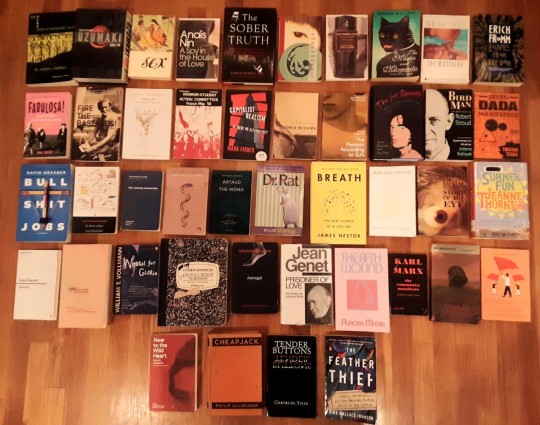
~Superlatives and Thoughts~
I read so many books this year I’m going to do a runner-up for each superlative category.
Favorite book: This is such a hard question this year. I think I gave out more five-star ratings on Goodreads this year than I ever have before. The books that got 5 stars from me this year were A Simple Story: The Last Malambo by Leila Guerriero, Capitalist Realism by Mark Fisher, The Emerald Mile by Kevin Fedarko, The Mustache by Emmanuel Carriere, The Passion According to GH by Clarice Lispector, trans girl suicide museum by Hannah Baer, The Fifth Wound by Aurora Mattia, Mammother by Zachary Schomburg, and Blackouts by Justin Torres.
But I think my favorite book of the year was The Fifth Wound by Aurora Mattia. It is an embellished, fictionalized biography of the author’s life, chronicling a breakup that occurred just before she began her transition, and then a variety of emotional events afterward and her renewal of a connection with that person after a number of years had passed. The writing style is beautiful, extremely decadent, and sits in a sort of venn diagram of poetry, theory, fantasy and biography. My coworker who recommended this book to me said no one she’d recommended it to had finished it because they found it so weird. I read the first 14 pages very slowly because I didn’t exactly know what the book was doing, but I quickly fell completely in love with the imagery and the formatting style and the literary and religious references that have been worked into the book both as touchstones for biography and as vehicles for fantasy. There is a video I remember first seeing years ago, in which a beautiful pinkish corn snake slithers along a hoop that is part of a hanging mobile made of driftwood and macrame and white beads and prism crystals. This was the image that was in the back of my head the entire time I was reading The Fifth Wound, because it matched the decadence and the strangeness and the crystalline beauty of the language and visuals in the book. It is a pretty intense book, absolutely packed with images and emotion and ideas and preserved vignettes where reality and fantasy and theory overlap. It’s one of those books that’s hard to describe because it’s so full. It’s dense not in that the words or ideas are hard to understand, but in that it’s overflowing with imagery and feelings, and it feels like an overflowing treasure chest.
Runner-up:The Mustache by Emmanuel Carriere. However, this book wins for a different superlative, so I’ve written more about it there.
Least favorite book: Querelle de Roberval by Kevin Lambert. I wrote a whole long review of it. In summary, Lambert’s book takes its name from Querelle de Brest, a novel by Jean Genet, and is apparently meant to be an homage to Genet’s work. Unfortunately, Lambert seems to misunderstand or ignore all the important aspects of Genet’s work that make it so compelling, and instead twists certain motifs Genet uses as symbols of love or transcendence into meaningless or negative connotations. He also attempts to use Genet’s mechanic of inserting the author into the narrative and allowing the author to have questionable or conflicting morals in order to emphasize certain aspects of the characters or narrative, except he does so too late in the game and ends up just completely undermining everything he writes. This book made me feel insulted on behalf of Jean Genet and all the philosophical thought he put into his work.
Runner-up: What We See When We Read by Peter Mendelsund. This graphic designer claims that when people read they don’t actually imagine what characters look like and can’t conjure up an image in their head when asked something like “What does Jane Eyre look like to you?” Unfortunately, there’s nothing scientific in the book to back this up and it’s mostly “I” statements, so it’s more like “What Peter Mendelsund Sees (Or Doesn’t See) When He Reads”. It’s written in what seems to be an attempt to mimic Marshall McLuhan’s style in The Medium Is The Massage, but it isn’t done very well. I spent most of my time reading this book thinking This does not reflect my experience when I read novels so I think really it’s just a bad book written by someone who maybe has some level of aphantasia or maybe is a visual but not literary person, and who assumes everyone else experiences the same thing when they read.
(Another runner-up would be The Hero With A Thousand Faces by Joseph Campbell, but I think that’s a given because it’s an awful piece of revisionist, racist trash, so I won’t write a whole thing about it. I can if someone wants me to.)
Most surprising/unexpected book: The Mustache by Emmanuel Carriere. This book absolutely wins for most surprising. However, I don’t want to say too much about it because the biggest surprise is the end. It was the most shocking, most unexpected and bizarre endings to a novel I’ve read in a long time, and I absolutely loved it. It was weird from the start and it just kept getting weirder. The unnamed narrator decides, as a joke, to shave off the moustache he’s had for his entire adult life. When his wife doesn’t react, he assumes that she’s escalating their already-established tradition of little pranks between each other. But then their mutual friends say nothing about the change, and neither do his coworkers, and he starts spiral into confusion and paranoia. I don’t want to spoil anything else because this book absolutely blew me away with its weirdness and its existential dread and anyone who likes weird books should read it.
Runner-up: Morvern Callar by Alan Warner. I don’t even know what compelled me to open this book at work, but I’m glad I did. The book opens on Christmas, where the main character, Morvern, discovers her boyfriend dead by suicide on the kitchen floor of their flat. Instead of calling the police or her family, she takes a shower, gets her things and leaves for work. Her narrative style is strange, simultaneously very detached and extremely emotional, but emotional in an abstract way, in which descriptions and words come out stilted or strangely constructed. The book becomes a narrative of Morvern’s attempts to find solitude and happiness, from the wilderness of Scotland to late night raves and beaches in an unnamed Mediterranean city. The entire book is scaffolded by a built-in playlist. Morvern’s narrative is punctuated throughout by accounts of exactly what she’s listening to on her Walkman. The narrative style and the playlist and the bizarre behavior of the main character were not at all what I was expecting when I opened the book, but I read the entire book in about 3 hours and I was captivated the whole time. If you like the Trainspotting series of books, I would recommend this one for sure.
Most fun book: The Emerald Mile by Kevin Fedarko. This book was amazing. It was like reading an adventure novel and a thriller and a book on conservationism all wrapped into one and it was clearly very passionately written and it was a blast. I picked it up because I was pricing it at work and I read the captions on one of the photo inserts, which intrigued me, so I read the first page, and then I couldn’t stop. The two main narratives in the book are the history of the Grand Canyon (more specifically the damming of the Colorado River) and the story of a Grand Canyon river guide called Kenton Grua, who decided with two of his river guide friends to break the world record for fastest boat ride down the Colorado River through the Grand Canyon. The book is thoroughly researched, and reaches back to the first written record of the canyon, then charts the history of the canyon and the river up to 1983 when Grua made his attempt to race down the river, and then the aftermath and what has happened to everyone in the years since. All of the historical figures as well as the “current” figures of 1983 come to life, and are passionately portrayed. It’s a genuine adventure of a book, and I highly recommend it.
Runner-up: Summer Fun by Jeanne Thornton. It asks “What if Brian Wilson of the Beach Boys was actually a trans woman?” Actually, that’s not quite it. It asks “What if a trans woman living in poverty in southwest America believed to an almost spiritual level that Brian Wilson was a trans woman?” The main character and narrator, Gala, is convinced that the lead singer of her favorite band, the Get Happies, (a fictional but fairly obvious parallel to the Beach Boys) is a trans woman. Half the book is her writing out her version of the singer’s life history, and the other half is her life working at a hostel in Truth Or Consequences, New Mexico, where she meets a woman who forces her out of her comfort zone and encourages her to face certain aspects of her self and identity and her connection with others. It’s a weird novel, and definitely not for everyone, but it’s fun. I was reading it on the train home and I was so into it that I missed my stop and had to get off at the next station and wait 20 minutes for the train going back the other way.
Book that taught me the most: Breath: The new science of a lost art by James Nestor. In it, Nestor explores why humans as a general population are so bad at breathing properly. He interviews scientists and alternative/traditional health experts, archaeologists, historians and religious scholars. He uses himself as a guinea pig to experiment with different breathing techniques from ancient meditation styles to essentially overdosing on oxygen in a lab-controlled environment to literally plugging his nose shut to only mouth-breathe for two weeks (and then vice-versa with nose breathing). It was interesting to see a bunch of different theories a laid out together regarding what kind of breathing is best, as well as various theories on the history of human physiology and why breathing is hard. Some of it is scientific, some pseudoscience, some just ancient meditation techniques, but he takes a crack at them all. What was kind of cool is that he tries every theory and experiment with equal enthusiasm and doesn’t really seem to favor any one method. Since he’s experimenting on himself, a lot of it is about the effects the experiments had on him specifically and his experiences with different types of breathing. His major emphasis/takeaway is that focusing on breathing and learning to change the ways in which we breathe will be beneficial in the long run (and that we should all breath through our noses more). While I don’t think changing how you breathe is a cure-all (some of the pseudoscience he looks at in this book claims so) I certainly agree that learning how to breath better is a positive goal.
Runner-up: The Sober Truth by Lance Dodes. I say runner-up because a lot of the content of the book is things that I had sort of vague assumptions about based on my knowledge of addiction and AA and mental illness in general. But Dodes put into words and illustrated with numbers and anecdotes and case studies what I just kind of had a vague feeling about. It was cool to see AA so thoroughly debunked by an actual psychiatrist and in such a methodical way, since my skepticism about it has mostly been based on the experiences of people I know in real life, anecdotes I’ve read online, or musicians/writers/etc I’m a fan of that went through it and were negatively affected.
Most interesting/thought provoking book: Mammother by Zachary Schomburg. The biggest reason this book was so interesting is because the little world in which it exists is so strange and yet so utterly complete. In a town called Pie Time (where birds don’t exist and the main form of work is at the beer-and-cigarettes factory) a young boy called Mano who has been living his childhood as a girl decides that he is now a man and that it’s time for him to grow up. As this happens, the town is struck by an affliction called God’s Finger. People die seemingly out of nowhere, from a hole in their chest, and some object comes out of the hole. Mano collects the things that come out of these holes, and literally holds them in order to love them, but the more he collects, the bigger he becomes as he adds objects to his body. A capitalist business called XO shows up, trying to convince the people of Pie Time that they can protect themselves from God’s Finger with a number of enterprises, and starts to slowly take over the town. But Mano doesn’t believe death is something that should be run from. This book is so pretty, and the symbolism/metaphors, even when obvious, feel as though they belong organically in the world. A quote on the back of the book says it is “as nearly complete a world as can be”, and I think that’s a very accurate description. The story is interesting, the characters are compelling, and the magical realist world in which the story exists is fascinating.
Runner up: trans girl suicide museum by Hannah Baer. This is a series of essays taken (for the most part) from Baer’s blog posts. They span a chunk of time in which she writes her thoughts and musings on her experience transition and transgender existence in general. It is mostly a series of pieces reflecting on “early” stages of transition. But I thought it was really cool to see an intellectual and somewhat philosophical take on transition, written by someone who has only been publicly out for a few years, and therefore is looking at certain experiences with a fresh gaze. As the title suggests, a lot of the book is a bit sad, but it’s not all doom and gloom. A lot of the emphasis is on the important of community when it comes to the experience of starting to transition and the first few years, and the importance of community on the trans experience in general. I really liked reading Hannah Baer’s thoughts as a queer intellectual who was writing about this stuff as she experienced it (or not too long after) rather than writing about the experience of early transition years and years down the line. It meant the writing was very sharp and the emotion was clear and not clouded by nostalgia.
Other thoughts/commentary on books I don’t have superlatives for:
I’m glad my first (full) book read in 2023 was A Simple Story: The Last Malambo by Leila Guierrero. It’s a small, compact gem of a book that follows the winner of an Argentinian dance competition. The Malambo is a traditional dance, and the competition is very fierce, and once someone wins, they can never compete again. The author follows the runner-up of the previous year, who has come to compete again. It paints a vivid picture of the history of the dance, the culture of the competition, and the character of the dancer the author has chosen to follow. It’s very narrowly focused, which makes it really compelling.
The Hearing Trumpet by Leonora Carrington could have easily won for most fun or most interesting book. Carrington was a surrealist writer and painter (and was in a relationship with Max Ernst until she was institutionalized and he was deported by the Nazis). In The Hearing Trumpet, an elderly woman called Marian is forced by her family to go live in an old ladies’ home. The first strange thing about the place is that all of the little cabins each woman lives in is shaped like some odd object, like an iron, or ice cream, or a rabbit. The other old women at the institution are a mixed bag, and the warden of the place is hostile. Marian starts to suspect that there are secrets, and even witchcraft involved, and she and a few of the other ladies start to try and unravel the occult mysteries hidden in the grounds of the home. The whole book is fun and strange, and the ending is an extremely entertaining display of feminist occult surrealism.
Sacred Sex: Erotica writings from the religions of the world by Robert Bates was a book I had to read for research for my debunking of Withdrawn Traces. It was really very interesting, but it was also hilarious to read because maybe 5% of any of the texts included were actually erotic. It should have been called “romantic writings from the religions of the world” because so little of the writing had anything to do with sex, even in a more metaphorical sense.
Every time I read Yukio Mishima I’m reminded how much I love his style. The Sailor Who Fell From Grace With The Sea almost usurped The Temple of the Golden Pavilion as my favorite Mishima novel. I’m fascinated with the way that Mishima uses his characters to explore the circumstance of having very intense feelings or reactions towards something and simultaneously wanting to experience that, while also wanting to have complete control and not feel them at all. There’s a scene in this novel where Noboru and his friends brutally kill and dissect a cat; it’s an intense and vividly rendered scene, made all the more intense by Noboru desperately conflicted between feeling affected by the killing and wanting to force himself to feel nothing. The amazing subtle theme running through the book is the difference between Noboru’s intense emotions and his desire/struggle to control them and subdue them versus Ryuji’s more subtle emotion that grows through the book despite his natural reserve. I love endings like the one in this book, where it “cuts to black” and you don’t actually see the final act, it’s simply implied.
In 2016 or 2017, I ran lights for a showcase for the drama department at UPS (I can’t remember now what it was) that included a bunch of scenes from various plays. I remember a segment from Hir by Taylor Mac, and a scene from The Aliens by Annie Baker. In the scene that I saw, one of the characters describes how when he was a boy, he couldn’t stop saying the word ladder, and the monologue culminates in a full paragraph that is just the word “ladder.” I can’t remember who was acting in the one that I saw at UPS, but that monologue blew me away, the way that one word repeated 127 conveyed so much. This year a collection of Annie Baker’s plays came in at work so I sat down and read the whole play and it was just incredible. I’d love to see the full play live, it’s absolutely captivating.
Narrow Rooms by James Purdy was a total diamond in the rough. It takes place in Appalachia, in perhaps the 1950s although it’s somewhat hard to tell. It follows the strange gay entanglement between four adult men in their 20s, who have known each other all their lives. It traces threads of bizarre codependency, and the lines crossed between love and hate. The main character, Sidney, has just returned home after serving a sentence for manslaughter. On his return, he finds that an old lover has been rendered disabled in an accident, and that an old school rival/object of obsession has been waiting for him. This rival, nicknamed “The Renderer” because of an old family occupation, has been watching Sidney all their lives. Both of them hate the other, but know that they’re destined to meet in some way. Caught in the middle of their strange relationship are Gareth, Sidney’s now-disabled former lover, and Brian, a young man who thinks he’s in love with The Renderer. The writing style took me some time to get used to, as it is written as though by someone who has taught themselves, or has only had basic classes on fiction writing. But the plot itself is so strange and the characters are so stilted in their own internality that it actually fits really well. Like The Mustache, this book had one of the strangest, most intensely visceral and shocking endings I’ve read in a while. It was also “one that got away.” I read it at work, then put it on my staff picks shelf, and only realized after someone else bought it that I should have kept it for myself.
The Passion According to G.H. by Clarice Lispector blew my mind. I really don’t want to spoil any of it, but I highly encourage anyone who hasn’t read it to do. The build in tension is perfect and last 30 pages are just incredible. Lispector’s style is so unique and so beautiful and tosses out huge existential questions like it’s nothing, and I love her work so much.
Moscow To The End Of The Line by Venedikt Erofeev was another really unexpected book. It’s extremely Russian (obviously) and really fun until suddenly it isn’t. The main character, a drunkard, gets on a train from Moscow to Petushki, the town at the end of the line (hence the title), in order to see his lover. On the way, he befriends the other people in his train car and they all steadily get drunker and drunker, until he falls asleep and misses his stop. Very Russian, somewhat strange, and I was surprised that it was written in the late 60s and not the 30s.
Dr. Rat by William Kotzwinkle was what I expected. Weird in a goofy way, a bit silly even when it’s serious, and rather heavy-handed satire. The titular Dr Rat is a rat who has spent his whole life in a laboratory and has gone insane. The other animals who are being tested on want to escape, but he’s convinced that all the testing is for the good of science and wants to thwart their rebellion. Unfortunately, all the other animals who are victims of human cruelty/callousness/invasion/deforestation/etc around the world are also planning to rebel, connection with each other through a sort of psychic television network. It’s a very heavy-handed environmentalist/anti-animal cruelty metaphor and general societal satire, but it’s silly and fun too.
Confessions Of A Part-Time Lady by Minette is a self-published, nearly impossible to find book that came into my work. It’s self-printed and bound, and was published in the 70s. It is the autobiographical narrative of a trans woman who did drag and burlesque and theatre work all across the midwest, as well as New York and San Francisco, from the 1930s up to the late 60s. It was originally a series of interviews by the two editors, who published it in narrative form, and it includes photos from Minette’s personal collection. It’s an amazing story, and a glimpse into a really unique time period of gender performance and queer life. She even mentions Sylvia Rivera, specifically when talking about gay activism. She talks about how the original group of the Gay Liberation Front was an eclectic mix of all sorts of people of all sexualities and genders and expressions. Then when the Gay Activists Alliance “took over”, they started pushing out people who were queer in a more transgressive or unusual way and there was more encouragement on being more heteronormative. She mentions Sylvia Rivera and Marsha P Johnson, saying “I remember Sylvia Rivera who founded STAR – Street Transvestite Action Revolutionaries. She was always trying to say things – the same kinds of things Marsha P Johnson says in a sweeter way – and they treated her like garbage. If that’s what ‘order’ is, haven’t we had enough?”
Whores For Gloria by William T Vollmann was exactly as amazing as I thought it would be. I love Vollmann’s style, because you can tell that even though the characters he’s writing about are characters, they’re absolutely based on people that he met or saw or spoke to in real life. The main character, Jimmy, is searching for his former lover, Gloria, who has either died or left him (it is unclear for most of the novel). He begins to use tokens bought from sex workers (hair, clothes, etc) to attempt to conjure her into reality, and when that doesn’t work, he pays them to tell him stories from their lives, and through their lives he tries to conjure Gloria. This novel’s ending had extremely similar vibes to the ending of Moscow To The End Of The Line.
Prisoner Of Love by Jean Genet was a lot to take in. It was weird reading it at this moment in time, and completely unplanned. It’s just that I have only a few more books to read before I’ve made my way through all Genet’s works that have been translated into English, and it was next on the list. Most of the book focuses on Genet’s time spent in Palestine in the 70s and his short return in the 80s. He also discusses the time he spent with the Black Panthers in the US, although it’s not the main subject of the book. Viewing Palestine from the point of view of Genet’s weird philosophical and moral worldview was really interesting, because what he chooses to spend time looking at or talking about is probably not what most would focus on, and because even his most political discussions are tinged with the uniquely Genet-style spirituality (if you can call it that? I don’t know what to call it) that is so much the exact opposite of objective. It’s definitely not a book about Palestine I would recommend reading without also having a grasp of Genet’s style of looking at the world and his various obsessions and preoccupations, because they really do inform a lot of his commentary. It was also written 15 years after his first trip to Palestine, partly from memory and partly from journal entries/notes, which gives it a sort of weirdly dreamlike quality much like his novels.
Blackouts by Justin Torres was so amazing! It blends real life and fiction together so well that I didn’t even realize that most of the people he references in the novel are real historical figures until he mentioned Ben Reitman, who I recognized as the Chicago King Of The Hobos and Emma Goldman’s lover. The book follows an unnamed narrator who has come to a hotel or apartment in the southwest in order to care for a dying elderly man called Juan Gay. Juan has a book called Sex Variants, a study of homosexuality from the 1940s which has been censored and blacked out. Back and forth, the narrator and Juan trade stories. The narrator tells his life story up until the present, including his first meeting with Juan in a mental hospital as a teenager. In turn, Juan tells the story of the Sex Variants book and its creator, Jan Gay (Ben Reitman’s real life daughter). The book explores the reliability of narrative, the power of collecting and documenting life stories, and of removing or changing things in order to create new or different narratives.
Again, Clarice Lispector rocking my world! Generally I can read a 200-ish page novel in somewhere between 2 and 4 hours depending on the content/writing style. Near To The Wild Heart took me 9 hours to read because I kept wanting to stop and reread entire paragraphs because they were so interesting or pretty or philosophical. The story focuses on Joana, whose strange way of looking at the world and going through life makes everyone sort of wary of her. This book is so layered I don’t really know how to describe it. So much of it is philosophical or existential musings through the vehicle of Joana. Unsurprisingly, it’s a beautiful book and I highly recommend it.
I’m just going to copy/paste my Goodreads review for Skye Papers by Jamika Ajalon: This book had so much potential that just…fell short. I could tell that it was written for an American audience but the way the reader/Skye is “taught” certain British terms and/or slang felt a bit patronizing. The characters were fleshed out and interesting and I liked them a lot but the plot crumbled quickly in the last half of the book Things sped up to a degree that felt strange and unnatural, the book’s pacing was inconsistent throughout. Perhaps that was deliberate considering the reveal at the climax, but if it was, it should have been utilized better. If the inconsistent pacing wasn’t deliberate, then it just made the book feel strange to read. There were moments were I felt like there should have been more fleshing out of certain character relationships. Even with the reveal at the end and the explanation of Pieces’ erratic/avoidant behavior, I wish there had been more fleshing out of the relationship or friendship between her and Skye at the beginning, when Skye first arrives in London. Characters who seemed cool/interesting got glossed over and instead there was a lot more dwelling on Skye walking around or busking or just hanging out. I could have gone without the last 30 or so pages after the big reveal, where Skye went back through everything that happened with the knowledge she (and the reader) had gained. It dragged on and on and at that point I felt like the whole story was so contrived that I just wasn’t interested anymore. A friend who read this book before I did said she thought it was an experimental novel that just hadn’t gone far enough, and I completely agree with her. I think if the style with the film script interludes went further, into printed visuals or more weirdness with the interludes, more experimental style with the main story, or something, it would have been really good. It just didn’t push hard enough.
The Feather Thief by Kirk Wallace Johnson was a fun little true crime novel about a young flautist who broke into a small English natural history museum in 2009 and stole hundreds of thousands of pounds worth of preserved rare bird skins dating back to the 19th century. He was a salmon fly-tying enthusiast and prodigy, and old Victorian fly designs used feathers of rare birds. The book first goes through the heist and the judicial proceedings, then examines the niche culture of Victorian fly-tying enthusiasts and obsessives, and then chronicles the author’s attempts to track down some of the missing birds. It was a quick, easy read, but fun and an unusual subject and I quite enjoyed it.
In 2024 I don’t plan on trying to surpass or even reach this year’s number. I’m going to start off the year reading The Recognitions by William Gaddis, then I’m going to re-read a number of books that I come across at work or in conversation and think Huh, I should reread that one of these days. So far, the books I am currently planning to reread: Sometimes A Great Notion by Ken Kesey, As I Lay Dying by William Faulkner, The People Of Paper by Salvador Plascencia, Mrs Dalloway by Virginia Woolf, The Mustache by Emmanuel Carriere, McGlue by Otessa Moshfegh, Long Day’s Journey Into Night by Eugene O’Neil, Acid Snow by Larry Mitchell, and Nightwood by Djuna Barnes.
#reading list#book list#book roundup#reading list year in review#books#squash rambles#reading year in review#book list roundup
6 notes
·
View notes
Text

Now showing on DuranDuranTulsa's Flashback Theater 🎥... Harry And The Hendersons (1987) on classic DVD 📀! #movie #movies #comedy #bigfoot #sasquatch #HarryandtheHendersons #JohnLithgow #KevinPeterHall #MelindaDillon #donameche #lainiekazan #memmetwalsh #DebbieLeeCarrington #joshuarudoy #dvd #80s #durandurantulsa #durandurantulsasflashbacktheater
#movies#movie#comedy#bigfoot#sasquatch#harry and the hendersons#john lithgow#melinda dillon#kevin peter hall#don ameche#joshua rudoy#lanie kazan#m emmet walsh#debbie lee carrington#dvd#80s#duran duran tulsa's flashback theater#duran duran tulsa
0 notes
Text
My Masterlist ♡
frequently updated :)
don’t worry, all posts are SFW!
★ - female!reader
☆ - male!reader
♣︎ - unspecified (readers choice)
I don’t write NSFW or pining canon characters. anything else is up for grabs!
Who I write for!
Fo4
all companions ( minus old longfellow, strong, ada, automotron, and dogmeat )
drummer boy
heather casdin
travis miles
Fo3
butch deloria
Destiny
the crow / uldren sov
Starfield
sam coe
heller
DC (Batfam, mostly)
Dick Grayson
Jason Todd
Tim Drake
Damian Wayne (underaged)
Marvel
peter parker (andrew or tom versions)
quicksilver (evan peters or aaron johnson version)
scott & alex summers (tye and lucas versions)
kurt wagner (kodi smit-mcphee version)
———❖———
warning, bunches of content below cut
Deacon ↴
MacCready ↴
deacon & maccready masterlist
Hancock ↴
monster ★ (hancock compares himself to other companions) (TW: vague mentions of suicide)
a messy list of hancock headcanons
Preston ↴
a messy list of preston headcanons
Gage ↴
a messy list of gage headcanons
a messy list of (angsty) gage headcanons
Danse ↴
a messy list of danse headcanons
a messy list of (angsty) danse headcanons
just a hobby of mine (danse finds deacon half dead)
danse’s arc (a rant)
The Big Leagues™︎ ↴
( non-canon stories about the pasts of fo4 companions )
( all parts can be found under the tag #mb; big leagues )
big leagues masterlist
Companions React ↴
how easy it is to make the companions cry
soft forms of affection the male companions enjoy
nicknames romanced male fo4 companions would call their so
cait, preston and danse react to receiving a hand-made gift
who male fo4 companions would be in a high school au
my personal ranking of fo4 companions
modern job aus (male)
oc ideas!
deacon, mac, and x6 react to sole kissing them ♣︎
companions react to hugs
male companions when they’re sick
ranking male companions (+ arcade and butch) taking care of an injured sole/lone/six
male companions as phobias
male companions in hallucigen inc
male companions as colors
Side Characters ↴
a messy list of carrington headcanons
kent connolly as a companion
crushing drummer boy ♣︎
dating drummer boy ♣︎
Butch DeLoria ↴
nosebleed? ★ (butch’s mother dies and lone comforts him)
butch reacts to positive physical touch
butch reacts to being shouted at post-vault
Batfam ↴
Joker Jr. (tim has a nightmare he can’t get out of, but luckily, jason’s strangely good at grounding people)
OC x Canon Character Asks ↴
question list
tommy x maccready (12, 18, 20)
tommy x maccready (22, 30, 33)
birdie x deacon (46, 50)
henley x butch (44, 24, 11)
Before Us™︎ ↴
( maccready x fem!oc )
( all parts can be found under the tag #mb; before us )
before us masterlist
Character Bingos / Games ↴
preston bingo
maccready bingo
deacon bingo
danse bingo
cait bingo
gage bingo
X6-88 bingo
piper bingo
oc sheet
fic recs!
Headcanons ↴
deacon’s sunglasses
deacon’s face
deacon & danse
hancock & deacon
hancock & deacon (elaborated)
cait & kent
maccready is scared of storms
The Crow / Uldren Sov ↴
wayfaring stranger ★ (a female guardian sings crow to sleep — request based on the canon quote “if the fallen captured me, who would sing crow to sleep?”)
little guardian ♣︎ (the guardian helps reassure crow after he fails the severance — request based on the canon quote “a lot of attitude for somebody who broke down crying last time we were here.”)
memories ♣︎ (crow makes the mistake of going to the tower on the anniversary of cayde’s death)
Destiny 2 ↴
guardian res headcanon
guardian memory headcanon
guardian ship poll
solar sickness lore idea
the aesthetics of the subclasses
solar sickness lore idea (extra info)
Crash and Burn™︎ ↴
( preston garvey x fem!oc )
( all parts can be found under the tag #mb; crash and burn )
crash and burn masterlist
My OCs ↴
introducing tommy
cabot house oc (sneak peek)
voltron oc
Art! ↴
( all found under the tag #maccreadysbaby draws )
whittaker & eli (courier six)
pidge & matt (voltron)
strand (destiny 2 subclass)
cute guy with blue hair (random art)
minecraft allay as a human (drawing challenge)
random oc headshot
damian wayne/robin
Hesh Walker ↴
i don’t want to die without him ★ (hesh is dying and he doesn’t wanna go without logan) (this is part of a double whammy post with a soap mactavish x reader at the end. ignore it or read it, too!) (TW: injury, blood & gore)
Logan Walker ↴
logan x single mother!reader masterlist
Soap MacTavish ↴
feelings police ★ (soap is a mess after ghost gets hurt and the feelings police is actually there to help)
deacon’s protégé ★ (soap makes a nerdy recruit blush) (this is on a double whammy post with a hesh x reader at the beginning. scroll until you see the bright blue deacon’s protege title.)
we’re okay ★ (soap has a breakdown after a long hard mission)
annoyance ★ (soap and a medic get in a fight that ends in something more surprising than anger) (fluffy !)
Writing Tips! ↴
writing tip masterlist
A Hundred Days to Become a Wayne (book one) ↴
( batfamily + oc insert )
a hundred days to become a wayne masterlist
A Hundred Ways to Become a Wayne (book two) ↴
a hundred ways to become a wayne masterlist
Ezra to the End of the Earth (and Back Again)
( original work about a child who finds out he can travel through alternate dimensions by accidentally traveling to one — and getting stuck )
ezra to the end of the earth masterlist
#deacon fallout 4#deacon#fallout#fallout four#fo4 deacon#fallout 4#fallout 4 companions#deacon fo4#fallout deacon#robert maccready#fo4#fo4 maccready#rj maccready#the minutemen#sole survivor#nick fo4#nick valentine#valentine#valentine fo4#paladin danse#danse fo4#x6 88#fo4 gage#cait fo4#fo4 curie#fo4 oc#call of duty mw2#soap mw2#call of duty mwii#simon ghost riley
141 notes
·
View notes
Text
@b1uedcollar asked: anon or not, send me ‘ 📖 ‘ and i will explain a situation / setting i’ve wanted to place my muse into, but haven’t had the chance to, yet. ( for scarlett specifically, but also anyone else )
Given that just about every single member of the Ewing family has been in at least one bar fight over the years, I really want to see what Scarlett would be like if she found herself in the middle of one. She'd more than likely smash a beer bottle over someone's head and then wind up spending the night in jail after getting stuck with an officer who couldn't care less about what her last name is, but it would be fun nonetheless.
I also really, really need to see Scarlett married and maybe even with at least one child. Given the terrible example her parents provided her with for so many years, she absolutely refuses to get married. Like, ever. Under no circumstances. Still, I need to find out if she's able to break the pattern or if she's so afraid she'll falter to the same temptations as Sue Ellen, especially given the fact that everyone's told her for her entire life that she's just like her mama, that she winds up doing exactly that.
Not sure if this one counts since I actually got to do it for about five seconds, but I need someone to remind Scarlett of the fact that Peter Richards almost turned out to be her father instead of J.R. Like, you don't even understand how much Scarlett craves to hear that her daddy is genuinely proud of her. In the back of her mind, there's this little voice that constantly tells her he'll never love her as much as John Ross. She'll always come in second, so knowing that her biological father could have quite easily been some college kid her mama had a little affair with is easily one of her biggest insecurities of all time and something she'll probably forever struggle with.
Part of me also kind of wants to do more with Scarlett during her college years down in Austin at the University of Texas where she was a cheerleader and a sorority legacy. It's where her mama grew up, so she's obviously going to know a decent amount of people, too. I just want to explore all the trouble she could get herself into and all the new people she could meet over those four years.
The same also applies for teenage Scarlett. She's definitely got a rebellious streak in her, and I just think it would be really fun to explore her attempts to sneak out, sneak guys onto the ranch for a little late night dip in the pool or some fun in the stables, skip school, etc. Oh, and let's not forget the first time she comes in the house drunk. Needless to say, none of it will go over well with J.R. and Sue Ellen. She also has her angelic moments as well, though. They're just a bit more few and far between during those years, though.
Scarlett at the annual Ewing barbecues and Ewing rodeos, though. Being the one who gets pushed into the pool one year at the former and winning the barrel racing competition at the latter, even though the Ewings never actually keep the prize money. Enough said. It'd just be a fun and interesting way to meet new people, I think.
This one is actually about Meagan Maynard from 9-1-1, but I want to find out how she would handle being caught in the middle of a hostage situation. Someone took over the call center once, but what if someone took over the police department? What if Meagan just happened to be there visiting Elaine when it happened? What if whoever took the station was in Captain Maynard's office, came across a picture of Meagan on her desk, and put two and two together? They could easily use her as a human shield and bait to get what they wanted from everyone else. I don't know. Angst is just really my jam, if that isn't already obvious.
I also have a whole list of these for Lauren Colby from the original Dynasty, like when she was a teenager and continuously attempted to sneak boys down to the lake on the Carrington property to go skinny dipping. Well, at least until Jeff found out about what his daughter was up to and immediately put a stop to it anyway. She's on her own blog now, though, so I should probably save her ideas for over there.
2 notes
·
View notes